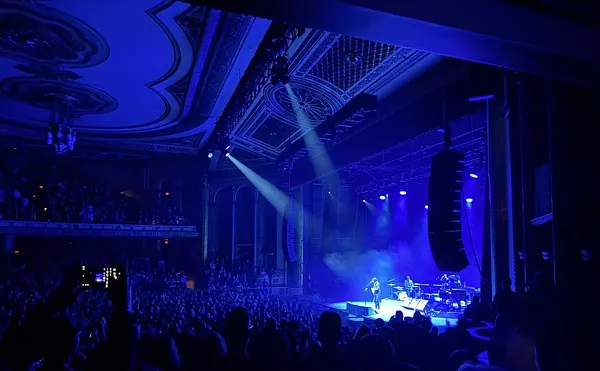
Audio By Carbonatix
[
{
"name": "GPT - Leaderboard - Inline - Content",
"component": "35519556",
"insertPoint": "5th",
"startingPoint": "3",
"requiredCountToDisplay": "3",
"maxInsertions": 100,
"adList": [
{
"adPreset": "LeaderboardInline"
}
]
}
]
When we think of the radical music of the early 20th century, particularly the new harmonic thinking proposed by Arnold Schoenberg in the first decade, it seems so foreign to anything written a century earlier: the keyboard works of Franz Schubert, for example. Classical concertgoers have a tendency to think this way too, running their fingers up and down schedules, looking for Chopin but shunning Ives, or hoping for a rare taste of Webern but recoiling from whole banquets of Beethoven. The proposition of this dialectically motivated recording by Austrian pianist Thomas Larcher is not only that we don’t have to compartmentalize ourselves this way, but that conversations across the ages are, in fact, fascinating.
One of Larcher’s questions in preparing this interlocking program of piano works by Schoenberg and Schubert seems to have been, “What is it that carries across from one epoch to another?” One answer could be feeling. Courage and lyricism, like personality, are endlessly various. Sadness, longing and concentration are surely 19th as well as 20th (and 21st) century states of mind. And here’s a pianist with a touch that permits him a full range of expression, from Schubertian drama to Schoenbergian unrest, with a fine sensitivity to the subtleties of both repertoires.
Of course, another quality that transcends time is formal perfection. Larcher has interwoven Schoenberg’s “Klavierstück op. 11” and Schubert’s “Klavierstück D 946,” playing their movements alternately (“Nr. 1” from one, then “Nr. 1” from the other, and so on), like the fingers of two hands intertwining. The result is a profound cohabitation of these works, conflating time and conventions into a singular performance. It’s as if the pieces were talking to each other and uncovering facets of each one’s unconscious in the process.
Larcher’s collaboration on another session of melding (violinist Michelle Makarski’s brilliant ECM recording, Elogio per un’ombra, which brings together Baroque and contemporary works) showed him open to the synthesis of distantly resonating elements. He caps off the present set with Schoenberg’s “Sechs kleine Klavierstücke op. 19” and Schubert’s “Allegretto D 915,” playing each in its brief entirety as if in a final nod, one to the other.
George Tysh is Metro Times arts editor. E-mail him at gtysh@metrotimes.com.





